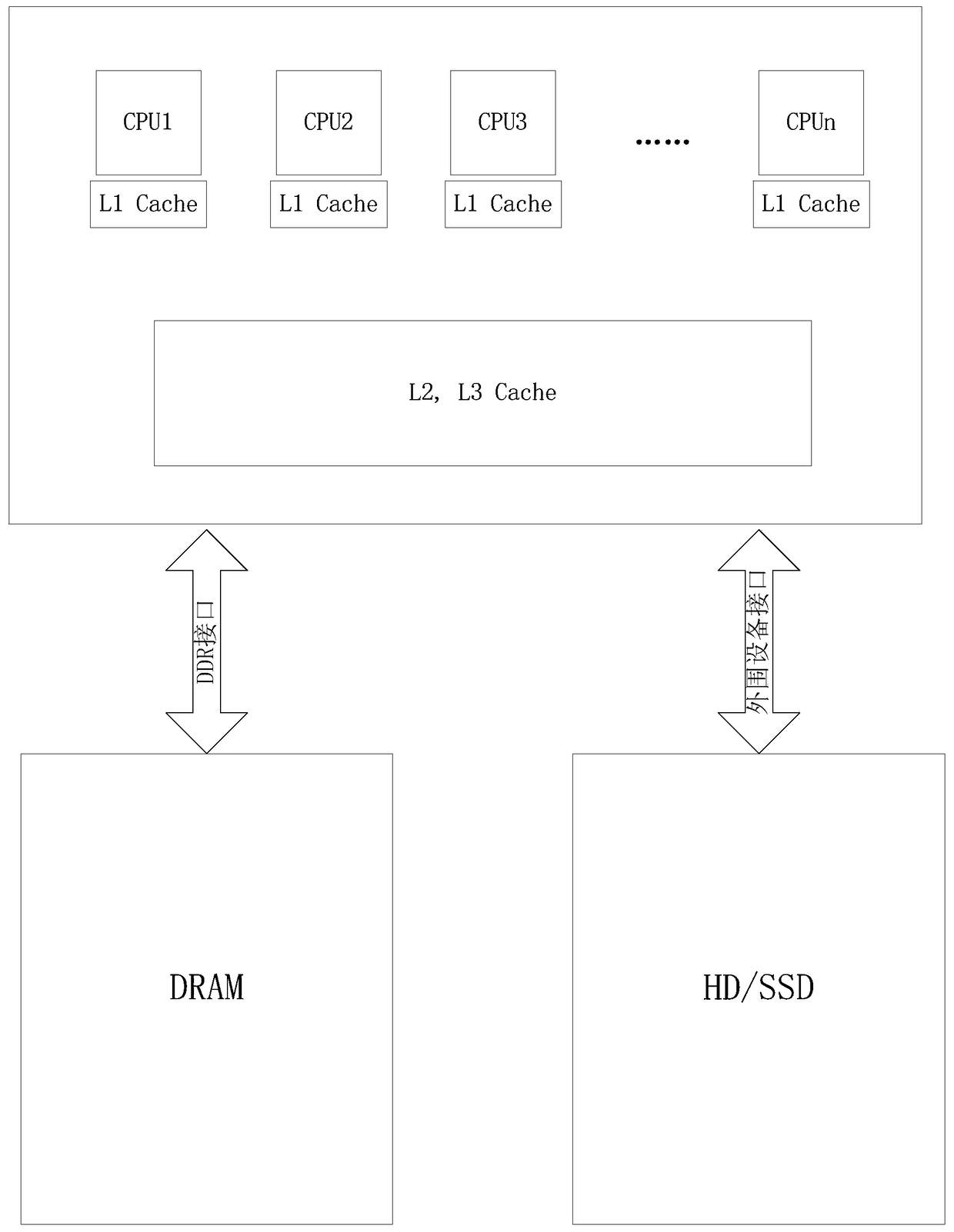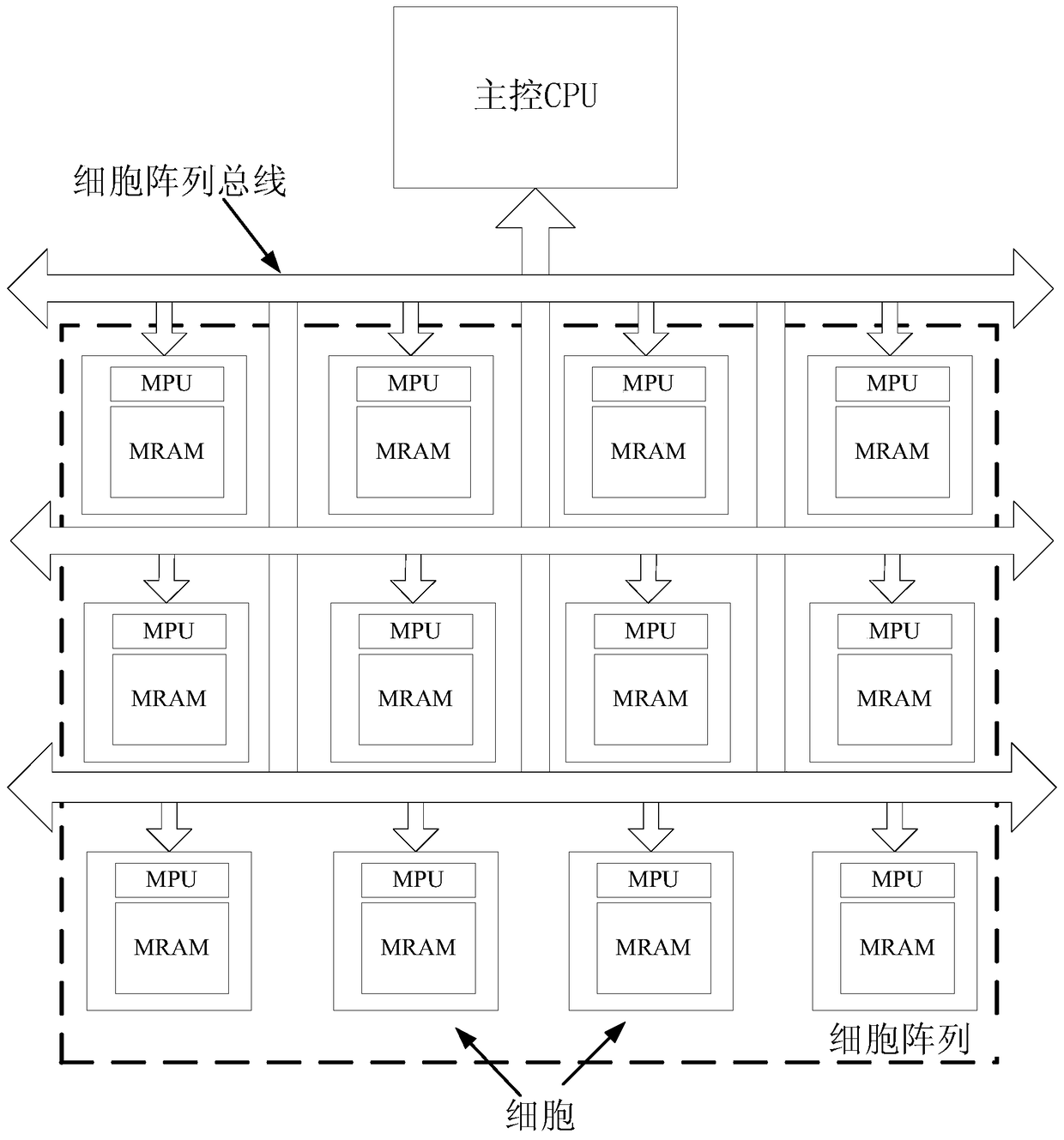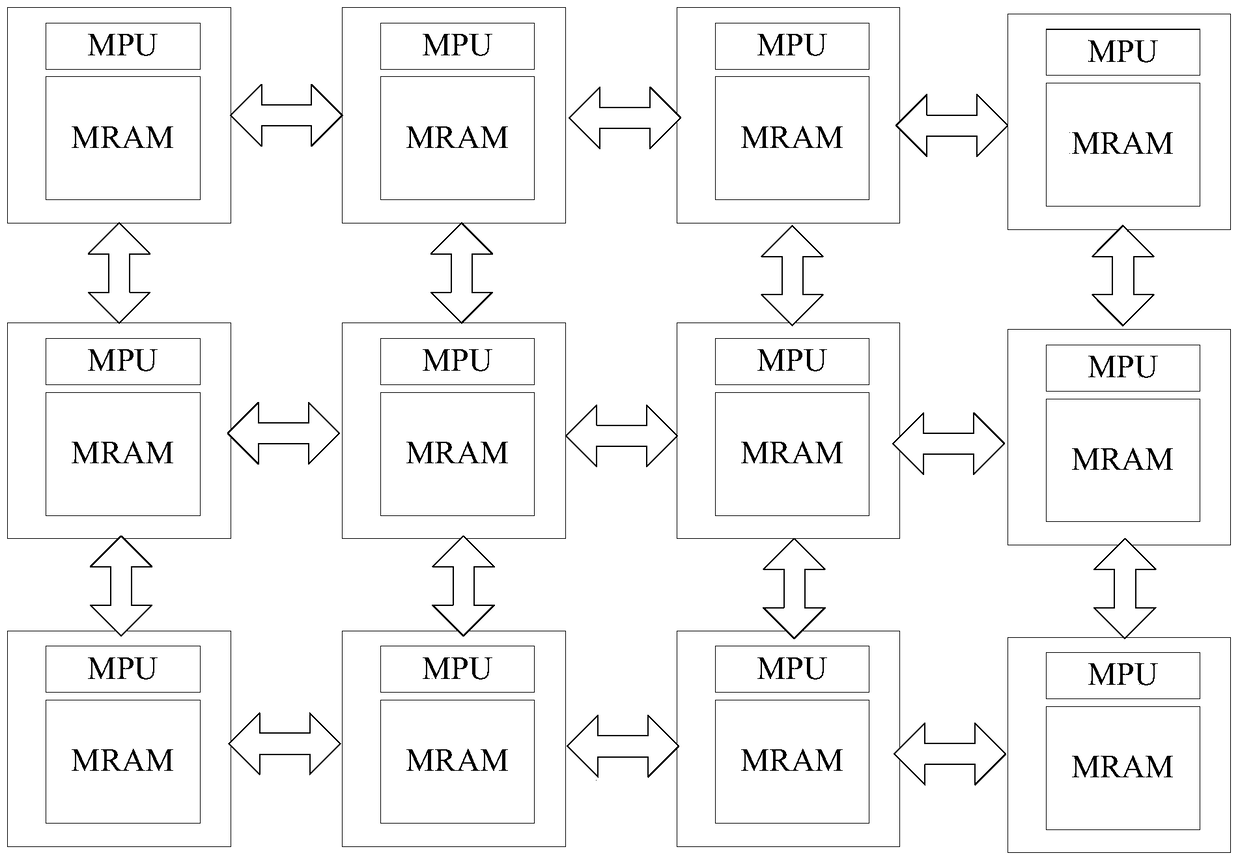Cell Array Computing System
A cell array and computing system technology, applied in the field of cell array computing systems, can solve problems affecting computer performance and poor cost-effectiveness ratio, and achieve the effect of improving overall performance and good cost-effectiveness ratio
- Summary
- Abstract
- Description
- Claims
- Application Information
AI Technical Summary
Problems solved by technology
Method used
Image
Examples
Embodiment 1
[0056] Such as figure 2 As shown, the cell array computing system provided in this embodiment includes: a main control CPU, a cell array, and a cell array bus; the cell array is the main body in the cell array computing system, and it is composed of more than one A two-dimensional array of functional cells, each of which includes a microprocessor (MPU) and non-volatile random access memory ( figure 2 MRAM is used as an example); the non-volatile random access memory is used for the random access of data involved in the calculation of the microprocessor, and is also used to store software instruction codes and data that need to be permanently preserved; each cell stores Each position in the cell array is used as an ID for software or hardware in the cell to read; the main control CPU communicates with each cell in the cell array through the cell array bus; the cell array There are communication interfaces between adjacent cells in the cell and can send data to each other.
...
Embodiment 2
[0175] Based on the cell array computing system provided in Embodiment 1 of the present invention, the cell array computing system provided in this embodiment extends a two-dimensional cell array to a three-dimensional cell array.
[0176] Such as Figure 14 As shown, the cell array computing system provided in this embodiment includes: a main control CPU, a cell array, and a cell array bus. Different from the cell array in Embodiment 1, the cell array in this embodiment is a three-dimensional cell array (3D cell array) formed by superimposing more than one two-dimensional array, and the two-dimensional array is the cell array in Embodiment 1. A two-dimensional cell array (2D cell array) is also composed of more than one cell with computing and storage functions, each cell includes a microprocessor and a non-volatile random access memory, for details, refer to the relevant content described in Embodiment 1 .
[0177] In this embodiment, each cell stores its position in the c...
Embodiment 3
[0197] As mentioned above, the cells in the cell array in Embodiment 1 of the present invention have three functions of memory, storage and calculation, and the non-volatile random access memory in the cells can realize the data involved in the calculation of the microprocessor. random access, and can store software instruction codes and data that needs to be permanently stored, but the cost of the non-volatile random access memory is generally higher, so the non-volatile random access memory in the cell is used as the space of the memory part If the amount of data processed by the microprocessor in the cell is large, the limited memory space may affect the processing efficiency of the microprocessor. How to expand the memory space of the cell becomes an urgent problem to be solved.
[0198] Based on the above considerations, on the basis of the first embodiment, this embodiment provides another structure of the cell array computing system, such as Figure 15 As shown, in addi...
PUM
 Login to View More
Login to View More Abstract
Description
Claims
Application Information
 Login to View More
Login to View More - R&D
- Intellectual Property
- Life Sciences
- Materials
- Tech Scout
- Unparalleled Data Quality
- Higher Quality Content
- 60% Fewer Hallucinations
Browse by: Latest US Patents, China's latest patents, Technical Efficacy Thesaurus, Application Domain, Technology Topic, Popular Technical Reports.
© 2025 PatSnap. All rights reserved.Legal|Privacy policy|Modern Slavery Act Transparency Statement|Sitemap|About US| Contact US: help@patsnap.com



